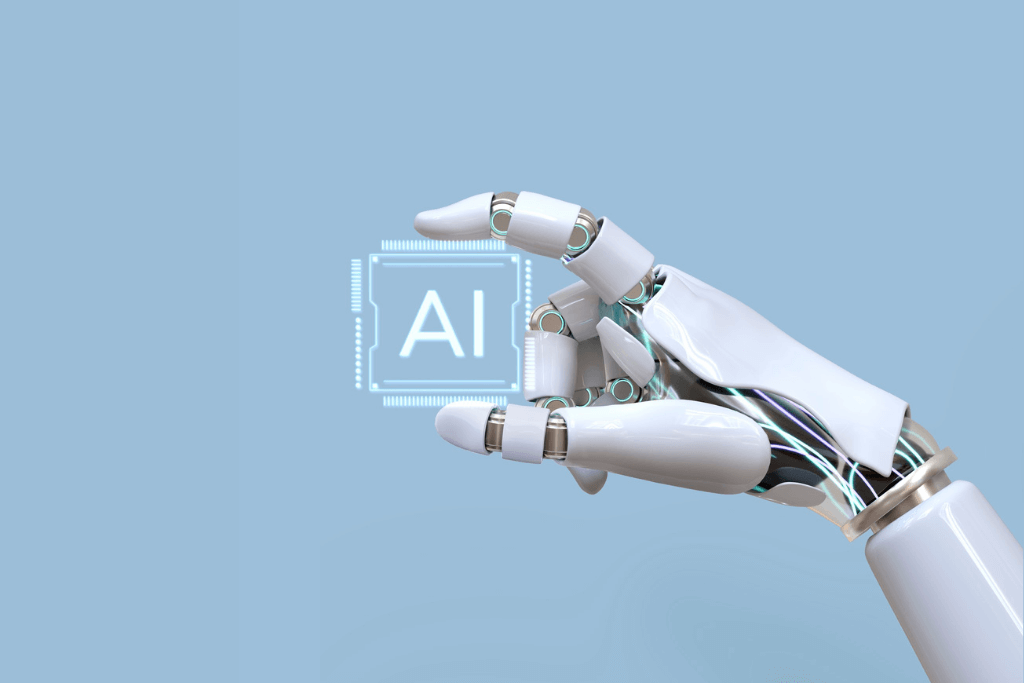Use of Artificial Intelligence in Business

Use of Artificial Intelligence in Business
Thanks to the use of artificial intelligence, businesses can make significant advances in areas such as data analysis, predictive analytics, chatbot solutions, production and business process management and RPA. The use of artificial intelligence for data analysis and predictive analytics helps businesses analyze large datasets and make important decisions, while chatbots can increase customer satisfaction by offering automated response systems on customer service.
In addition, thanks to the use of artificial intelligence in production and business processes management, it is possible to minimize errors and increase productivity thanks to machine learning capabilities. In addition, time and resources can be saved with RPA, in which repetitive processes are automated, and thanks to predictive analytics applications, businesses can predict possible scenarios and determine their strategies accordingly.
1. Artificial Intelligence for Data Analysis and Predictive Analytics
The use of artificial intelligence for data analysis and predictive analytics enables businesses to analyze large data sets more efficiently. In this way, businesses can make more important decisions and business processes become faster. Artificial intelligence collects and analyzes data from different data sources and provides predictive results. In addition, artificial intelligence algorithms can give accurate results even in the analysis of data with low accuracy rates. The use of artificial intelligence for data analysis and predictive analytics to make fast and accurate decisions is extremely important for businesses.
Large data sets are an important resource for businesses and making sense of this data is very important for the success of businesses. Artificial intelligence speeds up the decision-making process of businesses by enabling faster analysis of this data. Analysis of data enables businesses to understand customer needs and compete with their competitors. In addition, the predictive results offered by artificial intelligence also help businesses plan for a better future.
Topics that can be analyzed with artificial intelligence:
- Effectiveness of marketing campaigns
- Analysis of customer demands
- Future demand of products
- Supply chain management
- Cost reduction plans
Artificial intelligence is very useful for businesses for data analysis and predictive analytics. By using this technology, businesses can better manage their data, speed up their decision-making processes, and better understand customer demands. In summary, thanks to artificial intelligence, businesses can gain competitive advantage by using large data sets more efficiently.
2. Chatbot Solutions
Chatbots allow businesses to communicate with their customers more effectively. Using natural language processing technology, chatbots can automatically respond to customer questions and reduce the burden on the customer service team. In addition, chatbots can work around the clock and respond to customer requests instantly.
Some businesses use chatbots to provide customer service on e-commerce sites that sell online. Chatbots automatically respond when customers ask questions about products and provide more information about products to purchase. In this way, the customer experience is improved.
Chatbots can also be used for customer feedback. Chatbots can easily get customers' ideas and thoughts and help businesses improve their products and services.
3. Production and Business Processes
Manufacturing processes are critical to many businesses. While production errors and losses affect the profitability of the business, efficiency and time management determine the success of the business. Artificial intelligence can also be used as a useful tool in this field. By using machine learning, it can minimize errors in production processes and increase efficiency in business processes.
The use of artificial intelligence can be beneficial at every stage of production. For example, it can help the business produce less waste by detecting manufacturing defect. It can also increase the amount of product by increasing efficiency in the production line. The use of artificial intelligence can help a business identify problems that occur in the production process faster, allowing the business to solve these problems faster.
Another possible scenario regarding production processes and the use of artificial intelligence is the use of robotic systems. Robots can be used instead of human resources in production processes. By adapting its designs to robotic systems, the business can make production faster and reduce its costs with these robots.
As a result, the use of artificial intelligence is an important tool for increasing the efficiency of any business. By using technologies such as machine learning and data analysis, it becomes possible to minimize production errors and increase efficiency in business processes. An article written in a clear language and prepared using HTML tags provides the reader with a clear view of the subject and contributes to the opening of businesses to the use of artificial intelligence.
4. RPA (Robotic Process Automation)
RPA (Robotic Process Automation) speeds up work processes and minimizes human error by automating repetitive processes of businesses. RPA technology, using pre-programmed software, performs routine tasks and thus saves resources and time in businesses.
RPA applications can be used in many areas of companies such as customer service, finance and accounting, human resources and stock management. For example, in the finance and accounting departments, repetitive processes such as invoice processing can be automated with RPA. In this way, human error is minimized and businesses reduce the costs caused by manual operations.
Another advantage of RPA applications is that businesses make complex processes easier. For example, the collection and analysis of data from many departments can be automated using RPA. In this way, business processes become faster and more efficient.
Besides the above advantages, RPA applications can also be used in human resource management. For example, automating job applications accelerates the recruitment processes of businesses and minimizes the costs of human error.
5. Predictive Analytics
The use of artificial intelligence in predictive analytics applications allows businesses to make predictions for different scenarios and develop strategies based on these predictions. In this way, businesses can detect possible risks in advance and reach their goals by making the right decisions.
Artificial intelligence is a technology frequently used in predictive analytics applications. Leveraging large datasets, AI systems can analyze historical data to make predictions for possible scenarios. These forecasts help businesses determine strategies for the future.
For example, an e-commerce company can use artificial intelligence to analyze the shopping preferences of its customers and predict which products will see more demand in the future. Accordingly, it can organize product stocks and provide customers with a better shopping experience.
Artificial intelligence systems used in predictive analytics applications also help businesses increase their competitive advantage. Accurate forecasts and developed strategies enable businesses to take faster and more efficient decisions and take action earlier than their competitors.
However, the use of artificial intelligence in predictive analytics applications does not rely solely on the accuracy of predictions. Businesses need to be experts in data analysis and train artificial intelligence systems using the right data.
As a result, AI technologies help businesses achieve their goals in predictive analytics applications. The correct use of these technologies allows businesses to increase their productivity and gain competitive advantage.








